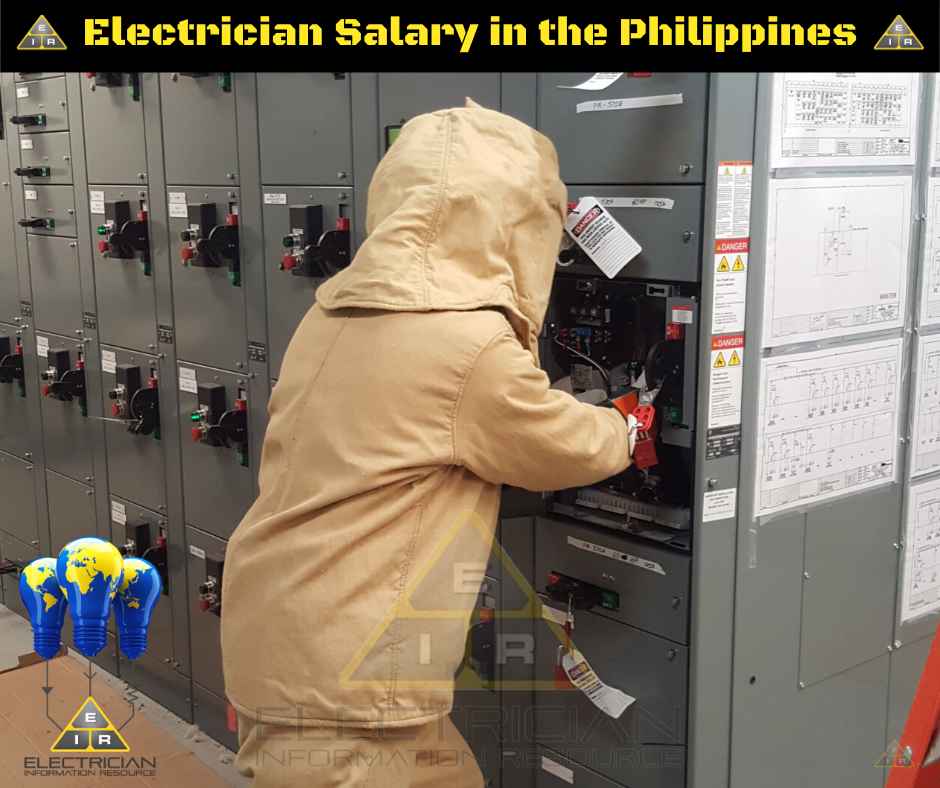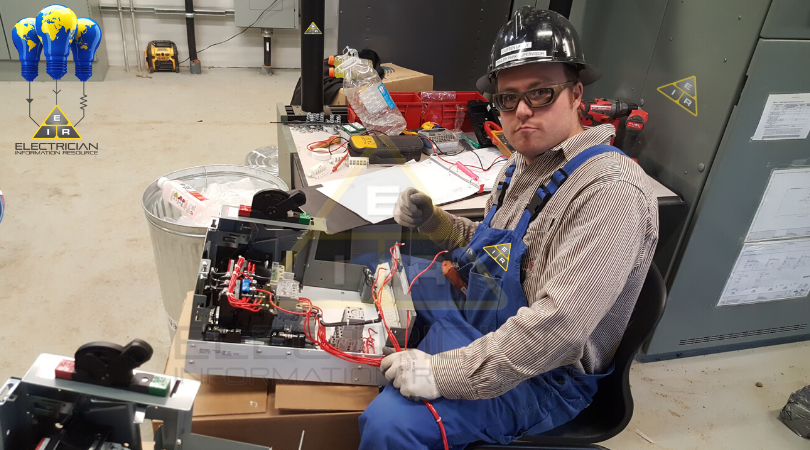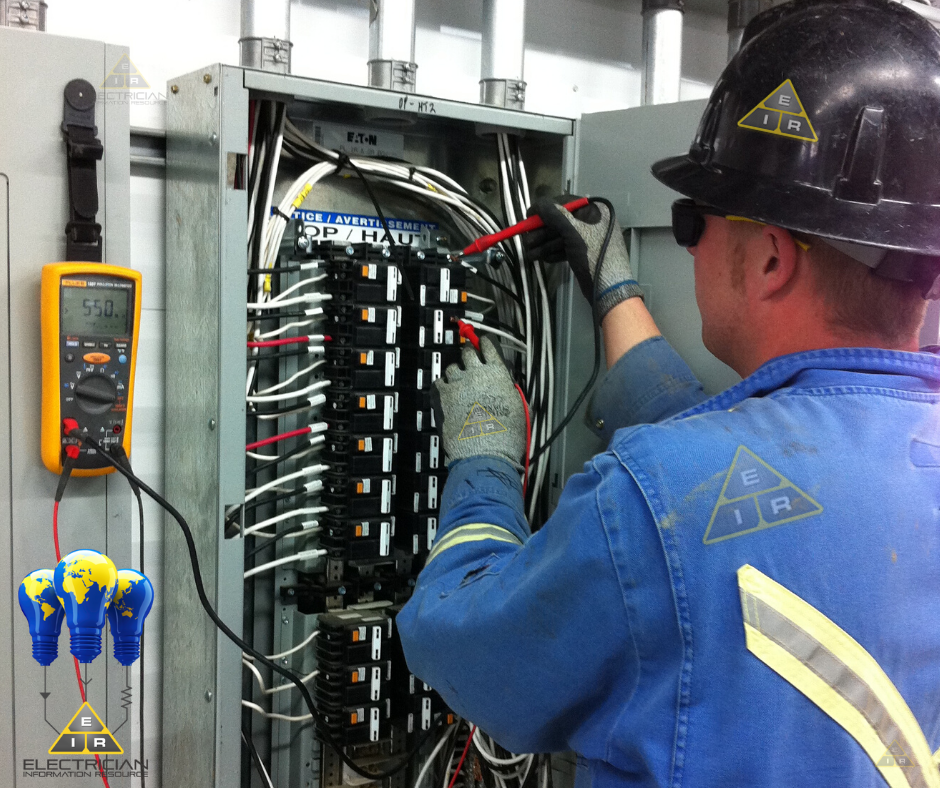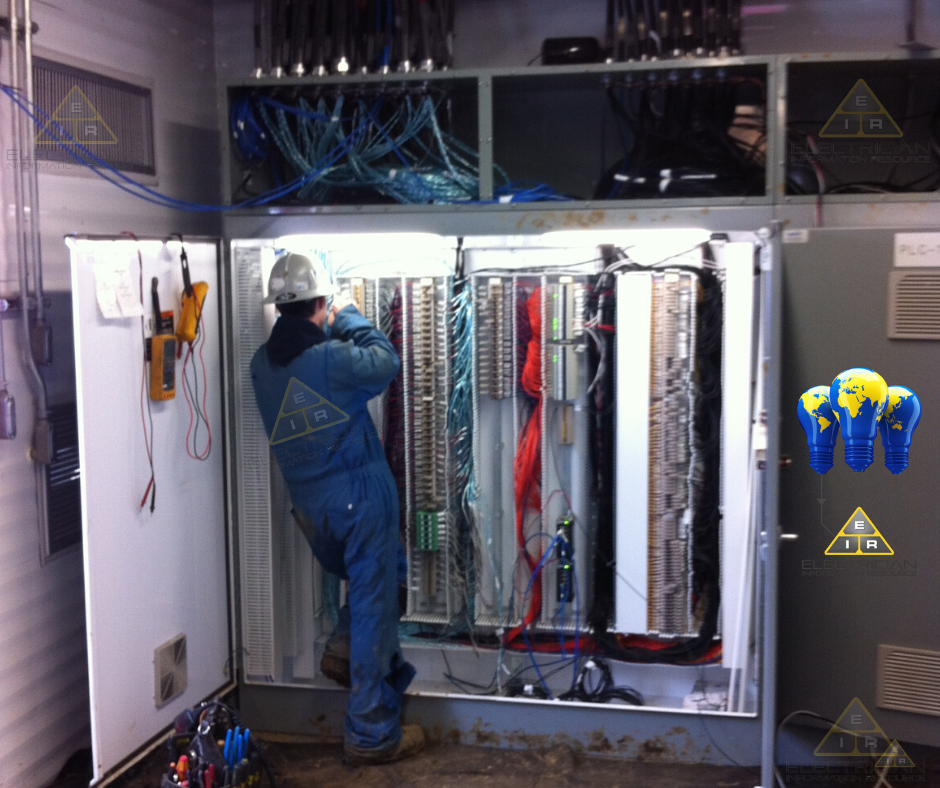Electrician Salary in Philippines: All You Need to Know

Are you curious about what an electrician salary in Philippines is? Do you want to become an electrician but fear that an electrician’s salary may not afford you a comfortable retirement? If the answer is yes, then do not worry as this article was written just for you.
To make it easy for you to decide whether this is a lucrative profession, we have analyzed the salaries of different kinds of electricians and their responsibilities. If your drive to become an electrician is based on passion and not what electricians earn, fill in your details below and start your electrician training in Philippines immediately.
We have prepared the Quick Menu below to help you read through this article.
Starting Your Electrician Journey
Before you proceed with this article, keep in mind that one important factor that will contribute to your electrician salary in Philippines is your level of training. You can decide to enroll in an electrician trade school and get a Diploma in Electrical Engineering Technology. These programs will help you find entry-level jobs to prepare you for a master electrician position.
If you are not sure whether the local school in your area is accredited to offer a Diploma in Electrical Engineering Technology, fill out the form below and we will get in touch.

Year 1
The first stage of your electrical training in the Philippines is to get a certificate in Electrical Engineering Technology. This is a 12-month course that will enable you to work as an:
- Assistant Electrician
- Electrical Draftsman
- Assistant Industrial Electrician
- Assistant Building Electrician
Year 2
After your first year, you can enroll for an Associate in Electrical Engineering Technology certificate. This will enable you to work in the following fields:
- Building Electrician
- Industrial Electrician
- Electrician
Job Duties of an Assistant Electrician
As an assistant electrician, you can consider yourself an apprentice. You will work under the supervision of a certified electrician or master electrician. Your main job duties will be to install and maintain electrical equipment, lay wiring cables, install commercial and industrial fixtures.
Assistant Electrician Salary
Expect your entry-level salary to be P8,200 - P12,500 per month
Job Duties of an Electrical Drafter
As an electrical drafter, you will have the following duties and responsibilities:
- Review industrial and commercial drawings for accuracy and conformity to electrical standards
- Create electrical schematics
- Install underground cables
- Install voltage cables
- Measure and highlight factors that might affect the installation of electrical cables and advise
- Interpret and prepare electrical specifications such as stress factors and weight
- Draft technical reports
- Provide cost estimates for an electrical project
Electrical Drafters Salary
Expect your starting salary to be around P15,000 a month
Building Electrician
As a building electrician, you will concentrate on residential homes. Expect to have the following duties and responsibilities:
- To maintain and install electrical equipment
- To use testing devices to troubleshoot electrical faults
- Inspect electrical equipment for damages
- To ensure safety procedures are enforced
- To test the efficiency of electrical units
Building Electrician Salary
Expect your starting salary to be around P226,306 a year
Industrial Electrician
As an industrial electrician, you will spend most of your time working in industrial buildings. You will need to be conversant with electrical safety codes and industrial equipment. You will have the following duties and responsibilities:
- Read and interpret blueprints
- Observe safety procedures
- Maintain, install and repair electrical equipment
- Provide advisory services to ensure efficiency
Industrial Electrician Salary in the Philippines
Expect your starting salary to be around Php 13,690 a month
Increasing Your Electrician Salary in Philippines
To increase your earning potential, you can sit for the Assessment test via the Technical Education and Skills Development Authority {TESDA}. The body uses the Philippine TVET Competency Assessment and Certification System.
One main advantage of having a TESD certificate is that it guarantees the graduate better-paying jobs. Keep in mind that the certificate is valid for five years and you will be required to fulfill the following conditions to renew it:
- Provide a certificate of employment
- Provided three passport photos of yourself in a collared attire
- Provide a certificate of competency
If you lose your certificate, you must provide a Letter of Request to indicate you need a new one. Attach a notarized affidavit to prove the document is lost. Submit these documents to the TESDA office that gave you the original copy.
Becoming a Master Electrician
To earn a higher electrician salary in the Philippines, you must become a master electrician. To qualify you are required to meet the following minimum requirements:
- Apply and pass a master electrician exam
- Have an apprentice experience of 5 years
- Provide signed notarized documents from a master electrician
- If you have sat for a 2-year vocational electrician course, then you are required to have 24 months of apprenticeship experience in electrical maintenance and installation
- Have five years of apprenticeship in electrical installation and maintenance if you are a high school graduate
- Be a Philippine citizen
- Be at least 18 years or older
- Prove your age by providing a PSA birth certificate
- Provide a PSA Marriage Certificate if you are a married female applicant
If you meet these requirements, you will be invited to sit for a master electrician exam that will be facilitated by the Professional Regulation Commission {PRC}.

Master Electrician Salary in Philippines
Once you graduate expect your registered master electrician salary Philippines to be around P19,000 a month. This salary is higher for a master electrician who is situated in an area that has a shortage of electricians.
If you continue with your electrician training in Philippines, you will become an electrical engineer. As an electrical engineer, you will be able to start your own electrical company and bid for lucrative government tenders. At this stage, expect your electrical engineer Philippines salary to be around ₱412,900.
Electrician Salary in Philippines for Different Electricians
Electronic Electricians
To become an electronic electrician, you will enroll in a 40-hour electronics course. Expect to be trained on the principles of electricity, electronic circuits, and the use of VOM instruments. As an electronic electrician, you will have the following duties and responsibilities:
- Repair electronic equipment such as medical monitoring devices and communication equipment
- Design and test electronic equipment
- Install electrical equipment
- Troubleshoot electronic equipment
- Update electronic software
Electronic and Electricians Salary
Expect your starting salary as an electronic electrician to be around P18,300.
Marine Electrician
If you fancy working on a ship as an electrician, then a marine electrician course is what you should consider. It is a 48-hour course that will cost you PHP 10,500. Keep in mind that a marine electrician salary Philippines will depend on your level of training and area of specialty. As a marine electrician, you will have the following job duties:
- Read and interpret a Ship’s electrical layout
- Help electrical engineers in finding electrical faults
- To use measuring instruments such as live-line testers and clamp meters
- Ensuring safety standards are met
- To troubleshoot motor starters
- Perform maintenance works on lighting systems, UPS systems and batteries
Marine High Voltage Electrician
Demand for high voltage marine electricians has been on the rise due to demand for bigger ships that require high voltage electricity. Without a high voltage marine electrician, ship members would be at risk of electrocution and fire. As a high voltage marine electrician, you will have the following duties and responsibilities:
- Ensure a marine’s high voltage system is operating efficiently
- Ensure operational safety requirements of a high voltage system is met
- Repair and maintain high voltage electrical equipment
- To install and troubleshoot high voltage electrical equipment
- To use testing and voltage measuring instruments
Solar Power System Installers
Solar power installers play a key role in ensuring the world has access to green energy. As a solar power installer, expect your electrician salary Philippines to be competitive and at least 20% more when compared to an industrial electrician. As a solar power systems installer, you will have the following responsibilities:
- Troubleshoot solar power systems
- Install and repair solar power systems
- Ensure local building codes are adhered to
Factors Affecting Electrician Salaries in the Philippines
You might be wondering why electrician labor rates Philippines vary from one industry to the other. The following are factors that affect electrician rates Philippines:
Electrician Unions
One reason why some electricians complain they earn a lower wage when compared to their fellow electricians is that they are not members of an electrical union. As a master electrician, it is advisable to join the Philippines Association of Master of Electricians {PAMEC}. The main role of PAMEC is to defend the rights of master electricians in the Philippines.
If you do not join a union, then you might be exploited by your employer. This is because a union negotiates salaries for its members based on the prevailing market rates. PAMEC also offers advisory services to electricians in the following practice areas:
- Building Wiring and Installation
- Industrial Maintenance
- Maritime Engineering
- Power Plant Generation
- Solar Energy

Task Difficulty
Another factor affecting electrician rates Philippines is the level of difficulty involved. Some electrician jobs are more challenging than others. For example, an electrician working as a residential technician will have a less demanding job when compared to a marine electrician. Based on the difficulty level at hand, unions will negotiate for higher salaries, specifically for members with demanding tasks.
Efficiency in the Industry
Your electrician salary in Philippines will depend on the level of efficiency that exists in your area of specialization. By efficiency, we mean the time it takes for a particular task to be complete. If you are in a sector that will require long hours of hard labor, then you will automatically ask for more pay to compensate for the time and sweat.
For example, a ship electrician salary Philippines cannot be compared to that of a residential electrician because you will spend more time working on a ship when compared to the time it takes for a residential electrician to work on a residential project.
Location
If you are in a region with a high demand for electricians, then you are in luck because the company’s that require your service will be willing to pay more. If you are working in a region where the cost of living is high, then you will be paid more to cater for the high cost of living.
These are just some of the few factors that affect an electrician salary in Philippines. The most important factor to always consider before you enroll for an electrician trade school in the Philippines is your area of specialization. The second is to join a union to ensure your interests are protected. To start your electrician training in Philippines now, fill the form below we will get in touch!
Start Electrician Training in the Philippines





